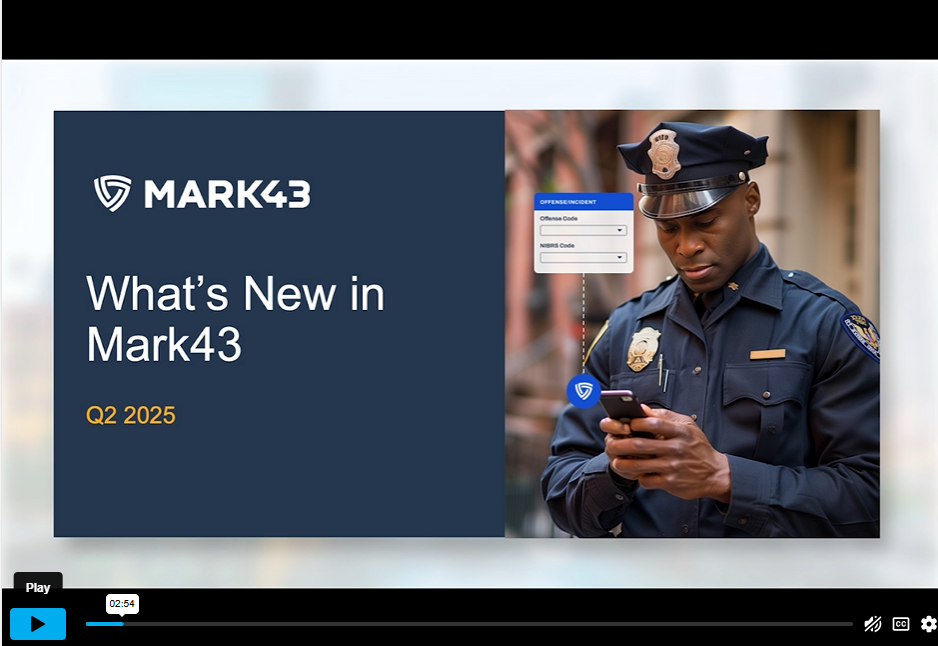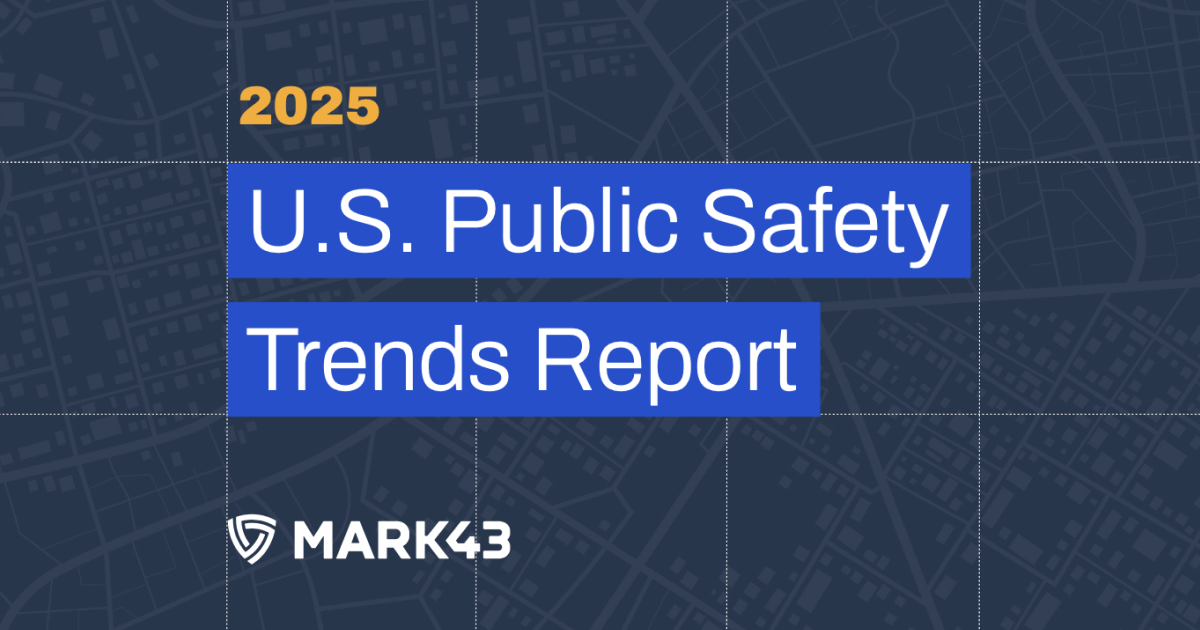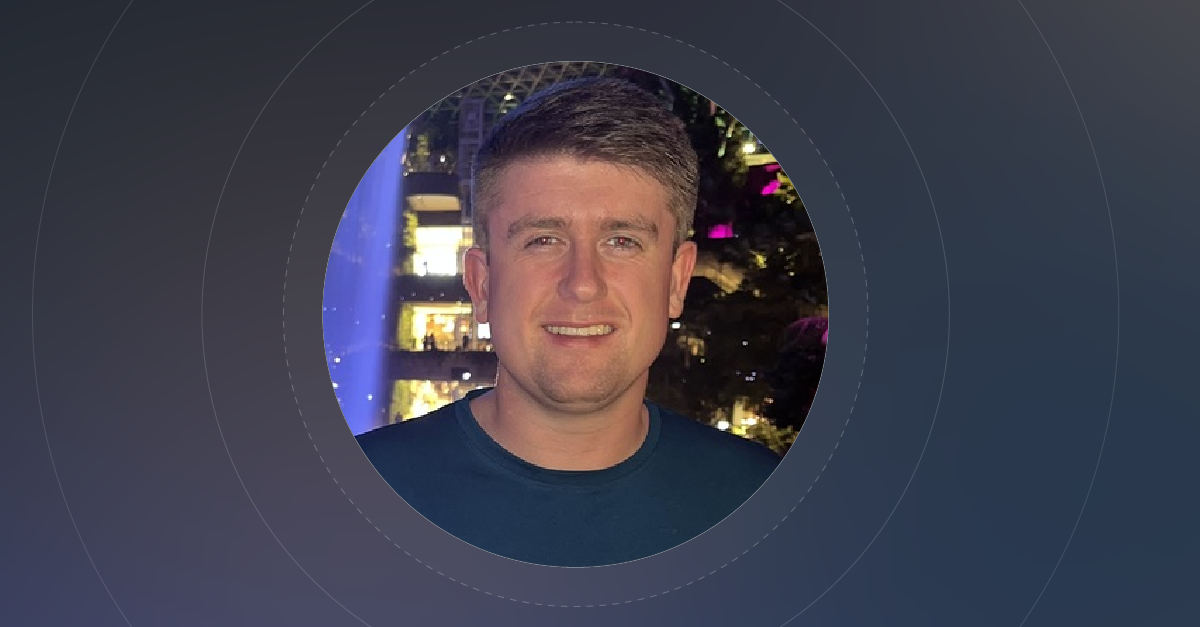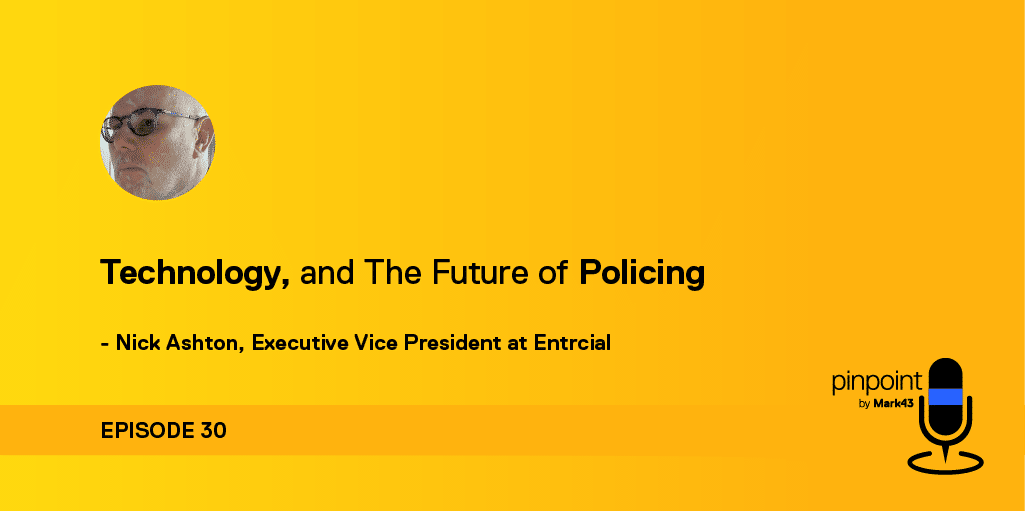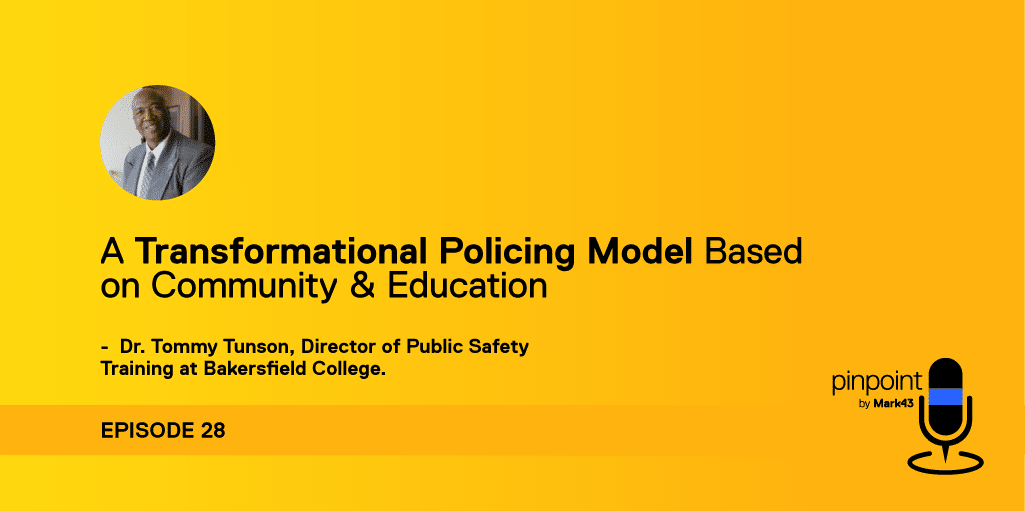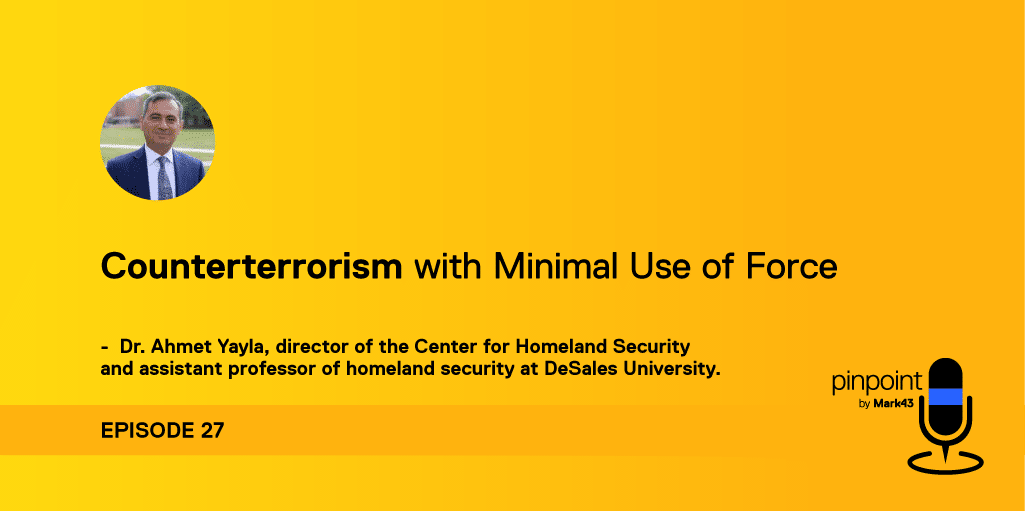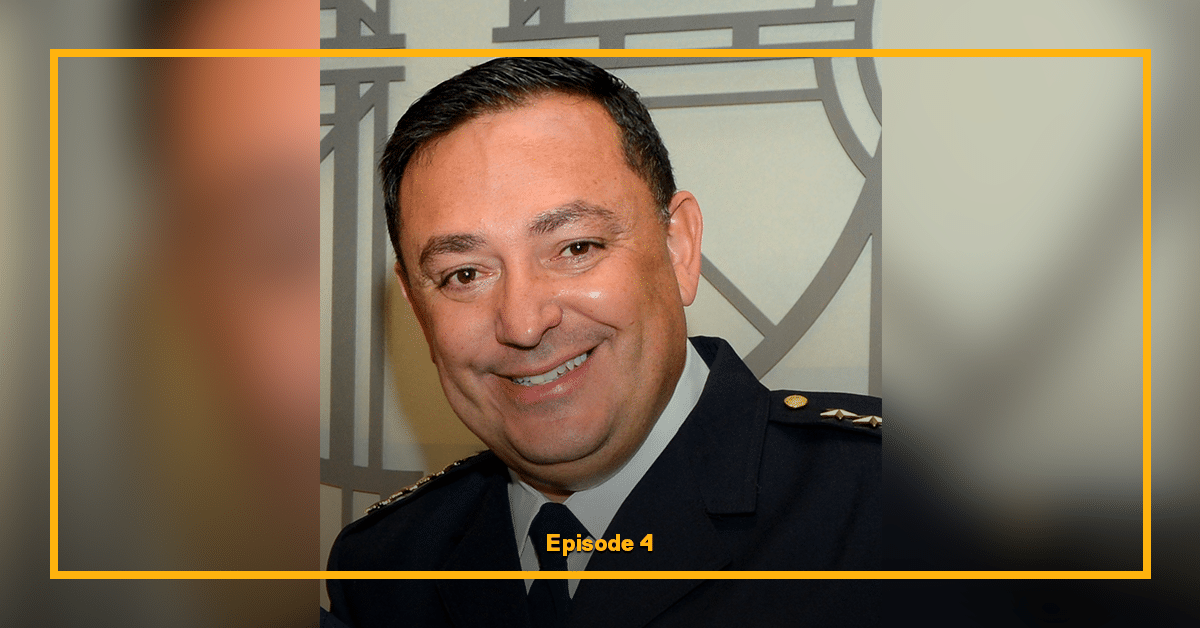
They say everything is bigger in Texas, except the police budgets.
Houston, Texas is a policing challenge, to say the least. The city will soon be the third largest in the country. It has 500,000 more people than 20 years ago, but 300 fewer police officers. There are 20,000 registered gang members (and many more that are unregistered).
The city’s truly under-resourced police department has learned how to operate very leanly. But since a new police chief arrived in late 2016, homicides are down 15% since last year.
To understand how Houston is doing it, Pinpoint guest host Dr. Antonio Oftelie of Leadership for a Networked World asked Chief Art Acevedo to reflect on his successes and lessons so far.
[popup_trigger id=”1576″ tag=”pinpoint”]
[/popup_trigger]
“We’ve actually made so many changes to the way we use existing limited resources, but we’re getting a lot more success and getting more done with less,” says Acevedo. “On top of not having the personnel, we actually have zero operational overtime. The only overtime dollars in our budget cover holiday pay. So, efficiency is really important.”
“What we’re doing is changing the way we approach combating violent crime. We’re changing our priorities, our mindset, and the criminal justice system from one of being tough on crime for the sake of being tough on crime,” says Acevedo, “to one that’s actually being smart and tough on crime. This means that we need to treat the nonviolent crime differently than the violent offenders.”
Changed Approach to Assault Investigation
In practice, this meant taking staff away from nonviolent crimes to work domestic violence and aggravated assaults with firearms as a priority. Before 2016, the city didn’t send detectives to drive-by shootings, to aggravated assaults where somebody was shot. They didn’t send a detective to a place where somebody was stabbed or shot unless they died.
The first 48 hours are the most important in solving crimes. “We weren’t even getting to attempted murder for 72 hours. You’ve already lost that first 48,” says Acevedo. “Every hour that passes from the moment the violent crime is committed, you start diminishing the chances of solving it.”
Today, the homicide department is now fully staffed with detectives working 24 hours a day. Before, detectives would be on call. Now instead of two detectives going to a murder scene, four detectives and a sergeant go to investigate right away so that they can hit the ground running.
“We’ve seen our clearance rates go up 70%,” says Acevedo. “This is the result of establishing the Major Assaults Unit that now goes to those shooting scenes instead of having a two-year officer go to collect evidence. We have seen arrests that wouldn’t have been made in the past, occurring on a regular basis.”
Crimes with firearms are also now immediately entered into NIBIN (National Integrated Ballistic Information Network). Before, information wouldn’t be put into NIBIN for as long as 10 days. Now information is put in as quickly as 24 hours.
“As a result, we’ve been able to start connecting [the dots] very quickly after violent crimes occur. Either a homicide or a drive-by shooting or a robbery connects different crime scenes and we’re solving violent crimes as a result of getting different pieces of the puzzle, and connecting the different crime scenes to solve a myriad of crimes,” says Acevedo.
Relational Policing is Better Than Community Policing
Instead of community policing, Acevedo prefers the practice of relational policing.
“Relational policing is about a mindset. It’s about an attitude and it’s about a spirit of service. It starts with the realization that any human interaction is the beginning of a relationship,” says Acevedo.
“It’s a mutual responsibility between the community, neighborhood churches, people, but for police officers, it’s also a sworn duty.”
TREEAT: A New Relational Policing Paradigm
Acevedo has created an acronym to remember the main tenants of his relational policing program: TREEAT
- Transparency: “We have to be transparent with the people we serve. And I, as a police chief, need to be transparent with the people I lead, the people I serve. Transparency breeds trust, trust breeds respect, and hopefully we reach cooperation. Also transparency in data. That information belongs to the public because our authority truly is derived by the consent of the people we serve,” says Acevedo.
- Respect: “Respect doesn’t require resources as much as it requires the right mindset and the right heart.”
- Engage: Leaders must engage with their community BEFORE there is a problem. “I have a personal relationship with our Black Lives Matter leadership here. NAACP, the dreamers, all the organizations fighting on behalf of immigrants. We have a relationship and we are engaging. My office is open,” says Acevedo. “And through that transparency, that respect, when we disagree, we disagree without becoming disagreeable.”
- Emotional Capital: Emotional capital means engaging with the rank and file in a way that shows you care. This becomes important during events like hurricane Harvey that hit Houston. On the eve of the monumental hurricane, Acevedo addressed his troops: “I told them that they’ll be talking about the response of this organization for generations to come, and the question I want to ask you all right now is what do you want to be said about you and your career and your department and this moment in time. What do you want your children, your grandchildren, your grandchildren’s children to say about you?” For the next six days, 5,200 sworn members of the Houston Police Department and a large percentage that were nonsworn members never went home. “Despite the fact that for over 600 of those folks their own homes flooded, not one of them abandoned their posts,” remembers Acevedo.
- Accountability: Because what a police department does is visible to everyone inside and outside of the department, if you don’t hold people accountable for their performance, everyone knows. Police chiefs have to make hard choices based on the facts. “The bottom line is accountability and needs to be based on not what is right for the executive that runs the department, not what’s right for any special interests, whether it’s labor or activists, but what’s right based on the facts, the evidence, departmental policy, the Constitution, and the law. Period.”
- Trust: “You build trust, everything else falls in place,” says Acevedo. When President Trump joked about roughing up prisoners, Acevedo led the charge with the other major police chiefs to immediately push back on social media. “I’m really proud that history will not be able to judge us at this moment. Our nation’s history, our department, and our profession won’t be able to say that we remained silent on the sidelines. We are speaking out when people of color being maligned.“
What TREEAT Looks Like in Practice
When a transgendered female was murdered in Houston, the police handled the information about the victim in a way that was considered deeply offensive to the transgendered community.
To help his department better work with the transgender community, Acevedo arranged for all police officers to get special training. It was important to have relational policing with this community.
But not everyone was on board with the program.
“A commander that was at the training attacked the instructor, made statements to the effect that ‘the department can’t tell me who I have to respect!’ 150 employees saw that. That commander was brought to my attention immediately. That commander is sitting at home right now and is subject to an internal investigation,” says Acevedo.
This isn’t about political correctness. This is about being able to relate to the communities the police serve.
“We’re committed to this. I can’t control what you think. I can’t get into your mind. But I can control how you act, and I can control how you treat people,” says Acevedo.
Making the Changes Sustainable
Acevedo has spoken about relational policing so much that he has become a minor YouTube star among police cadets.
“I’m really proud of people that join the academy. I think they were watching my videos because they’re actually starting to talk about relational policing.”
The hashtag #relationalpolicing has been trending across the country which makes Acevedo proud.
The Chief is on Patrol
Acevedo walks the walk. He frequently goes on patrol alone. He’s made a commitment to his troops that the day he can’t do their job at the patrol level, is the day he quits.
“I still go on patrol. New Year’s Eve, I was up there by myself at night, caught four different bad guys at four different scenes,” says Acevedo. “That’s my real therapy, going on patrol. I love this profession. I still think it is the most noble profession.”
Chief Art Acevedo will be attending the upcoming Public Safety Summit at Harvard University. The participants at this year’s Summit will learn and share best practices on leading and sustaining transformation within rapidly changing environments. Public safety officials can learn more about the program and submit an application to attend here.




